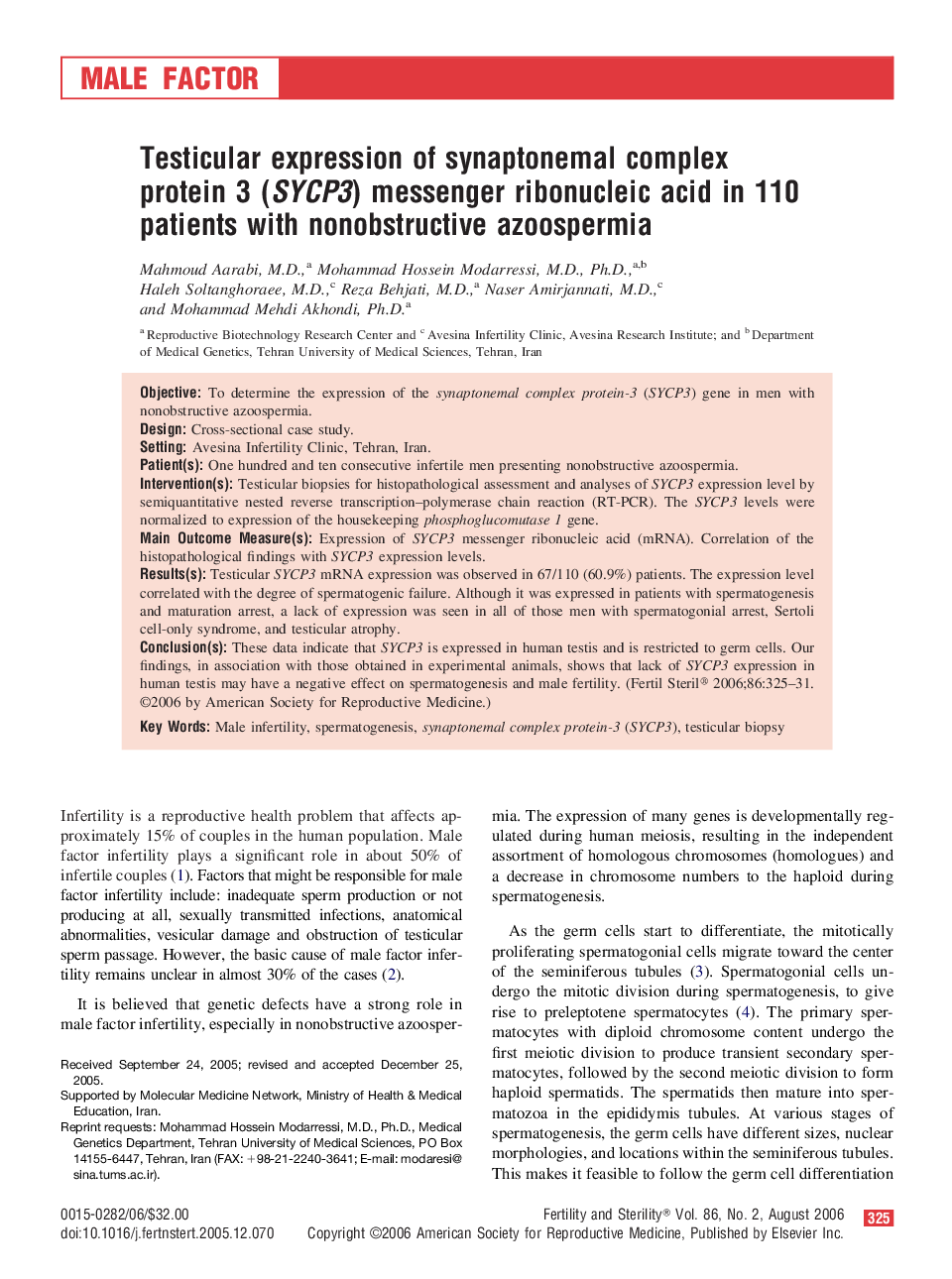| Article ID | Journal | Published Year | Pages | File Type |
|---|---|---|---|---|
| 3942149 | Fertility and Sterility | 2006 | 7 Pages |
ObjectiveTo determine the expression of the synaptonemal complex protein-3 (SYCP3) gene in men with nonobstructive azoospermia.DesignCross-sectional case study.SettingAvesina Infertility Clinic, Tehran, Iran.Patient(s)One hundred and ten consecutive infertile men presenting nonobstructive azoospermia.Intervention(s)Testicular biopsies for histopathological assessment and analyses of SYCP3 expression level by semiquantitative nested reverse transcription–polymerase chain reaction (RT-PCR). The SYCP3 levels were normalized to expression of the housekeeping phosphoglucomutase 1 gene.Main Outcome Measure(s)Expression of SYCP3 messenger ribonucleic acid (mRNA). Correlation of the histopathological findings with SYCP3 expression levels.Results(s)Testicular SYCP3 mRNA expression was observed in 67/110 (60.9%) patients. The expression level correlated with the degree of spermatogenic failure. Although it was expressed in patients with spermatogenesis and maturation arrest, a lack of expression was seen in all of those men with spermatogonial arrest, Sertoli cell-only syndrome, and testicular atrophy.Conclusion(s)These data indicate that SYCP3 is expressed in human testis and is restricted to germ cells. Our findings, in association with those obtained in experimental animals, shows that lack of SYCP3 expression in human testis may have a negative effect on spermatogenesis and male fertility.
